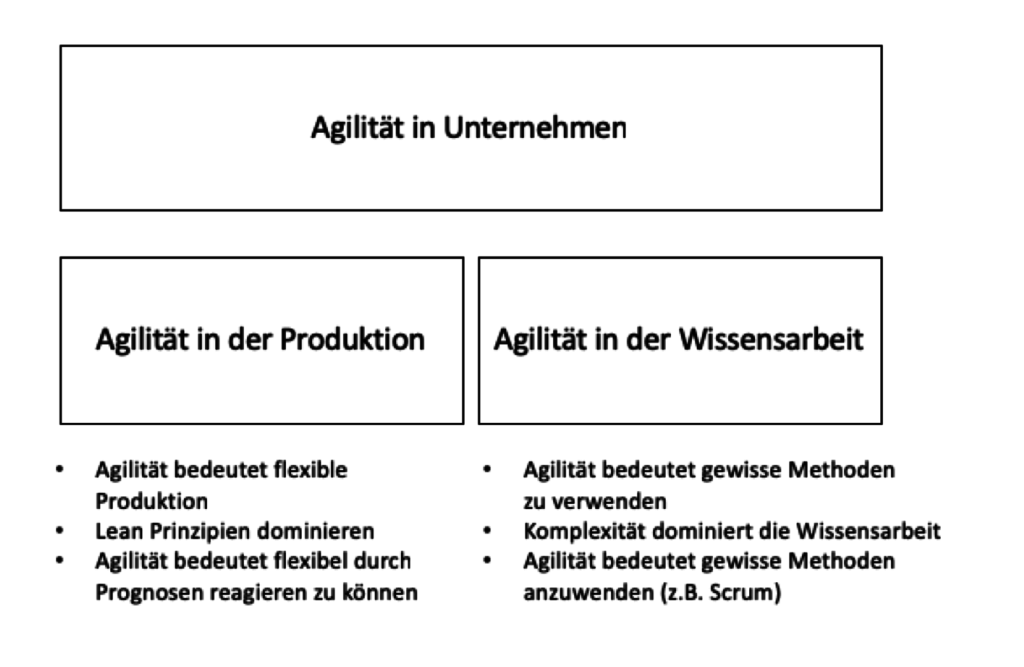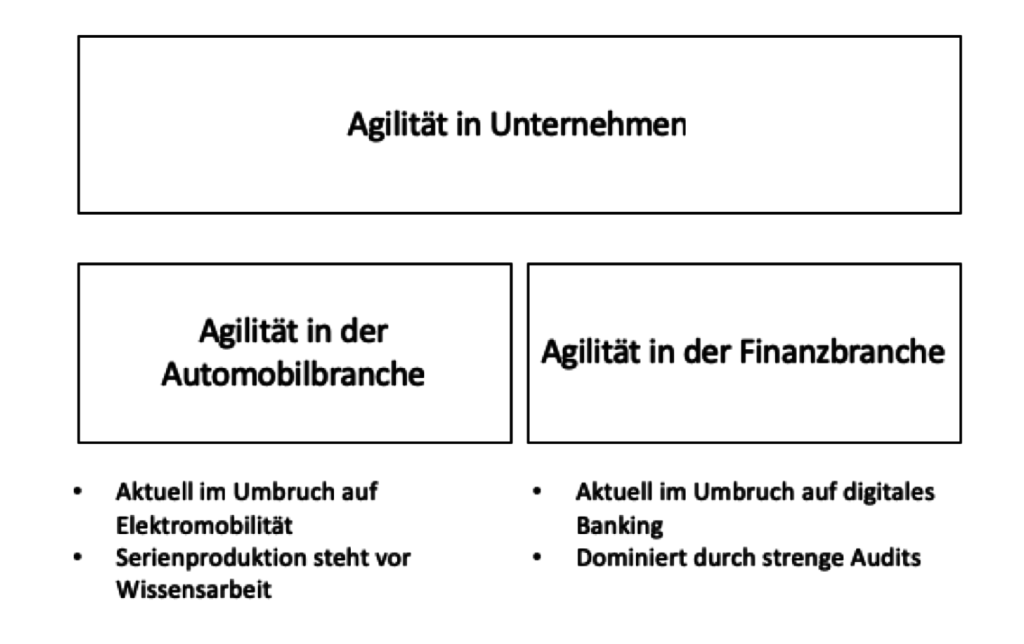Are you writing a thesis and should you write it in the special context of your company or an industry or do you have a special context for SMEs or associations? You will often find a lot of general literature and probably little literature specific to your field. This is quite normal as many researchers prefer to do broader research.
Tip: If you cannot find any literature in general, then read my article: Help, I can’t find any literature!
However, the fact that you are researching a specific niche is often of value in practice, as many results are not transferable to any industry. I have e.g. Researched SMEs and often heard about general results: this only applies to corporations or it is too expensive for us, … There are also almost no studies on agility in SMEs. It is therefore important that you work out the specific framework conditions of an industry or an SME. For SMEs, for example (Lindner 2019):
- Short decision paths
- Small process landscape
- Low budgets
Now I would like to give two examples in the following, which will help you to work on a topic in a meaningful way. The first is in the figure. You want to examine agility. Now your practice partner is a manufacturing company. But you won’t find any literature on agility in production. The idea is now as follows:
- Gather general insights into corporate agility.
- Then you collect information: What are the framework conditions of my context?
- Which of the general findings fit the framework of my context?
You will notice that, for example, knowledge work and production are very different. While production is more concerned with Industry 4.0 and Lean, methods such as Scrum dominate research in knowledge work. It is therefore important to carry out a consideration taking the context into account.

I would like to give a similar example for an industry. You will find the automotive and financial sectors below. Agility means something completely different in both industries and the results are not all transferable. However, you will hardly find any information on agility in the industries directly. It is therefore important to derive general findings and evaluate them in the context of the framework conditions: Does that fit my industry?

Tip: you should Literature for a practice partner search then you can proceed in the same way:
- Find and summarize general literature
- Analyze the general conditions of the practice partner
- Investigation: What suits my practice partner?
Conclusion
Researching a niche is very valuable in practice, as numerous managers have books on e.g. Read agility and think: That doesn’t fit my industry / company! You should therefore summarize general literature and ideally have a list: theses on agility. Now use the industry criteria to evaluate: Does this thesis fit my industry or not? In the end, you get a dedicated analysis for your context.
You can find a great example for SMEs in my study:
Lindner, D., Ludwig, T., & Amberg, M. (2018). Work 4.0 – Concepts for a new way of working in SMEs. HMD Praxis der Wirtschaftsinformatik , 6th (1), 17.
source
Lindner, D. (2019). SMEs in the digital transition: results of empirical studies . Wiesbaden: Springer Gabler.
Image source: Designed by Freepik – freepik
[student] [fotolia]


